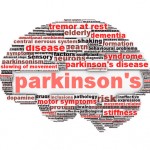
Eat like your grandma did, and your health will improve!
- Fresh food tastes best: I think we’ve gotten away from knowing what real, fresh food tastes like. Chef Jamie Oliver is famous for going into schools and asking children to name the vegetables he holds up. Very few can correctly identify them because they never eat them!
- “The food you eat can be either the safest and most powerful form of medicine or the slowest form of poison” (quote by Ann Wigmore): If we have to detoxify from the processed food that we eat, then our bodies are not able to properly detoxify. Eating whole, fresh foods made from scratch ensures high nutrient levels.
- Our “food” isn’t food if it’s packed with artificial colors, flavors, preservatives and long chemical names: “The Crazy Makers: How the Food Industry Is Destroying Our Brains and Harming Our Children” is a book that shows us how food additives contribute to declining mental health. Your brain and your child’s brain are starved for nutrition, and they’re not getting it if your “food” comes with a long list of chemicals in the ingredients.
- Artificial colors, flavors and preservatives can cause ADHD symptoms: The Feingold diet for ADHD shows how all of those pretty blues, yellows, reds and other colors in our kids’ fun foods can cause spaciness or hyperactivity, especially in children. Artificial flavors and preservatives, especially BHA and BHT, do the same. Food isn’t fresh if it’s got these ingredients in it.
- Canned foods have high levels of endocrine-disrupting BPA, BPS and phthalates: That plastic lining on the inside of your canned food is doing more harm to your health than you think, as it can lead to hypothyroidism and gunk up your cells’ mitochondrial dysfunction. Plus, the food is definitely not fresh!
- Even frozen food isn’t fresh: The late Dr. Annemarie Colbin, author and founder of The Natural Gourmet Institute in New York City, said that freezing fruits and vegetables ruptures the cell walls of the plants, thereby reducing the nutritional value of the food.
- You can add love to your food when you cook it: Have you ever noticed how much better food tastes when it’s homemade or made by your mom? Some people think it’s love that makes the food taste better.
- Processed food contains more sugar and/or high-fructose corn syrup: Robert Lustig teaches how harmful sugar is to our health. I know you’ve read that statement before, but did you know that sugar is the most inflammatory food there is AND it feeds cancer?
- Processed food typically contains unhealthy canola, soy and other harmful vegetable oils: I know you’re scratching your head at this one. It took me a while to wrap my head around it, especially because many “healthy food” magazines tout the benefits of canola and other vegetable oils. The Weston A. Price Foundation shows us how the extreme processing of these oils leads to rancid oils containing high amounts of inflammatory free radicals. Grandma didn’t eat these oils, and neither does my family!
- Fresh food has more nutrients: Compared to “healthy” fast food alternatives, fresh, homemade food has more nutrients plus the love you put into it!

 And here’s yet another reason to eat organic food: pesticides might be causing your food allergies. Dichlorophenols, such as the pesticide 2,4-D as well as moth balls and room deodorizers, kill bacteria, including the good bacteria in your gut and may thus contribute to gut dysbiosis.
And here’s yet another reason to eat organic food: pesticides might be causing your food allergies. Dichlorophenols, such as the pesticide 2,4-D as well as moth balls and room deodorizers, kill bacteria, including the good bacteria in your gut and may thus contribute to gut dysbiosis.  Here’s another reason to eat organic food and stop spraying your lawn: even low levels of organophosphate pesticides cause brain damage. Exposure is linked to a decline in memory and slower processing speed.
Here’s another reason to eat organic food and stop spraying your lawn: even low levels of organophosphate pesticides cause brain damage. Exposure is linked to a decline in memory and slower processing speed.  Triclosan in cosmetics and personal care products can increase allergy risk.
Triclosan in cosmetics and personal care products can increase allergy risk. Head injury and pesticide exposure leads to 3x the risk of Parkinson’s disease.
Head injury and pesticide exposure leads to 3x the risk of Parkinson’s disease. 

